Interest Free Financing Up To 36 Months
WE DO NOT ONLY PUMP YOUR TANK - WE CLEAN IT!
Multiple Financing Options Are Available Up To 36 Months
Interest Free Financing Up To 36 Months
WE DO NOT ONLY PUMP YOUR TANK - WE CLEAN IT!
Multiple Financing Options Are Available Up To 36 Months
Regarding septic equipment, few companies know their stuff better than Septic Blue of Raleigh. Nobody likes to talk about their septic system, but it's important to know what happens when there is a problem. A complete septic inspection should be done once a year by a professional. This will determine your drain field's health and prevent major future problems. Septic health relies on timely septic tank pumping and septic tank repair.
The septic system is a critical part of your home's infrastructure. It's responsible for removing wastewater from home and transporting it to the land treatment facility. If there is an issue with the septic system, it can cause major problems for your home, including:
Identify the location of your septic tank by looking at your property deed or title or by checking with your local county tax office or city assessor's office. If you're unsure where your septic tank is, call Septic Blue of Raleigh, who can help you find it. To locate it yourself, start by looking for signs of where wastewater flows from your home into the ground, such as a mound of dirt or grass in an area that drains well away from wells or streams.
You'll want someone else around when doing this step because they'll need help lifting up the lid once it's removed. Use a flat head screwdriver or chisel to pry off any rocks or debris that might be holding down the lid; then lift up on it as high as you can with one hand while pulling on it with the other until it comes loose completely.
During the inspection process, your technician will check for excess sludge in your tank. This indicates that there may be a problem with your drain field. If there is too much sludge in your system, they will recommend that you use a pump jetter to clean out the sludge from around your drain field lines and pipes. Otherwise, this could lead to serious problems when your drain field fails completely.
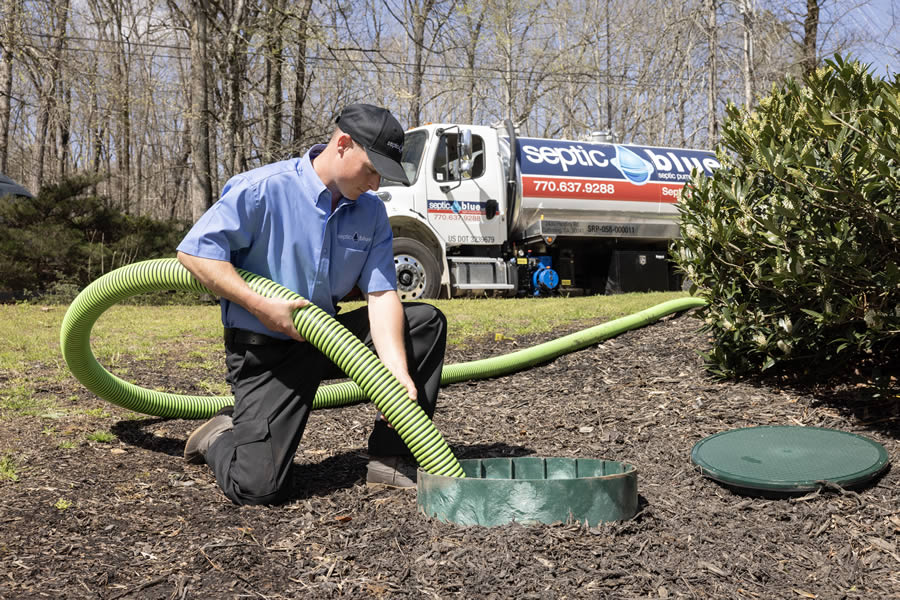
Septic tank pumping in Raleigh has never been so affordable and accessible thanks to the professionals at Septic Blue. We are…
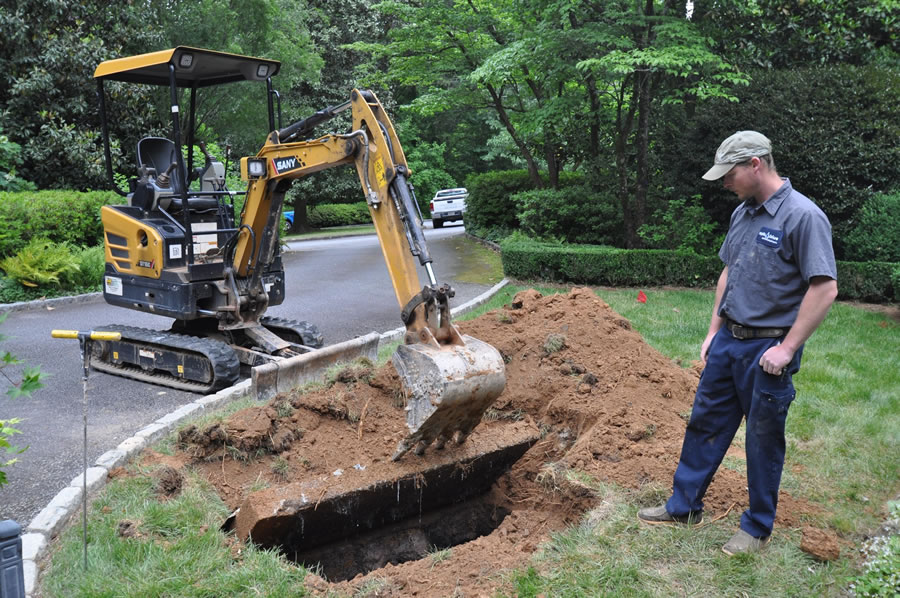
One quarter of Americans rely on septic tanks to process household waste. Most Septic Blue locations have septic tank experts who…
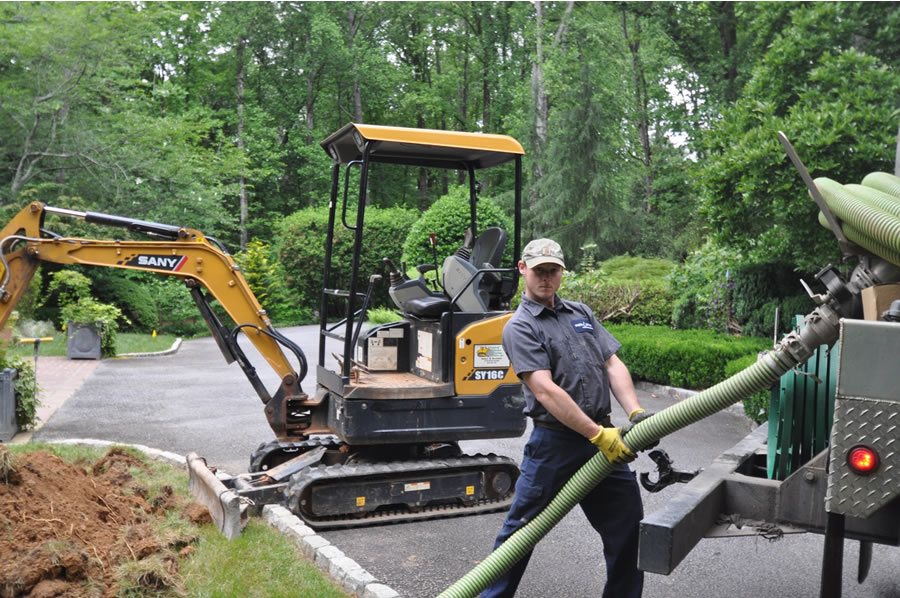
Call Septic Blue today for a second opinion. If you choose to go with Septic Blue, you'll receive $250 off your…
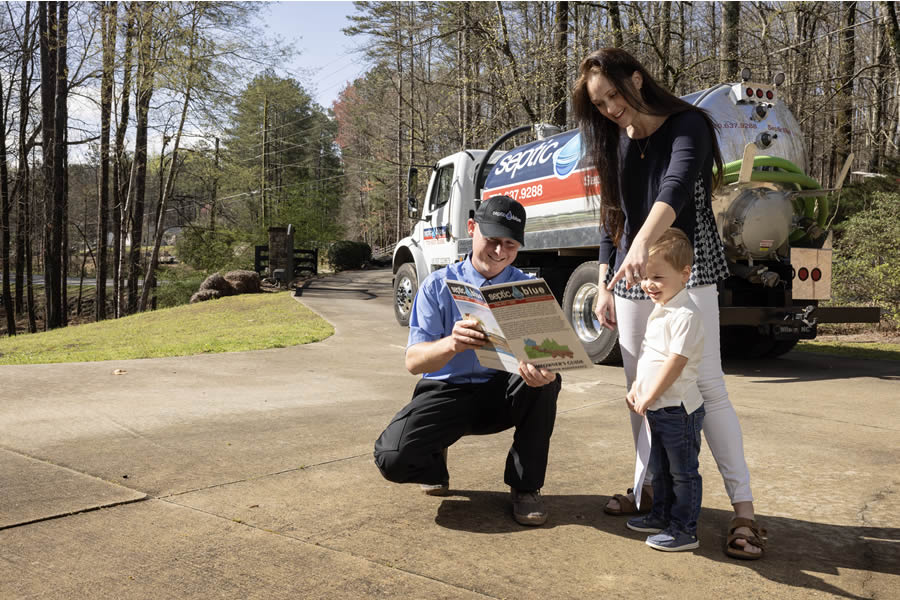
If you are a homeowner or resident in Raleigh that is among the 20 percent of households in the U.S. with…
Professional Saptic Plumbing solutions for every need. Contact Us Today!
Any cracks in your concrete slab or around the perimeter of your tank could indicate some sort of leak happening inside the tank itself. Leaks can cause serious damage to your home and must be fixed as soon as possible. A professional will be able to determine if any type of leak is going on inside the septic tank and what steps need to be taken next.
The baffles in your septic tank work to separate solids from liquids so that they do not mix together and cause problems with your waste disposal system. Any damage to these baffles could lead to blockages and backups in your plumbing and drainage system. During our inspection, we will check each baffle individually to ensure that they are still intact and working properly without any damage.
This step is important for the proper operation of your septic system. If your water flow is extremely slow or nonexistent, you may need to consider replacing your filter or pump. Check for any leaks outside or in the drain field. Leaks can be caused by pipes that are loose or cracked. This problem can often be fixed by replacing damaged pipes and/or adding new ones.
Drain fields can also leak if they have cracks or are not properly lined with gravel or soil around the pipes to prevent erosion and improve drainage. Check for cracks in the drain field by digging down into it with a trowel and checking for signs of erosion or other damage near where it meets the house foundation. If there are several leaks in different parts of your system, you may have problems with seepage from your tank into the ground around it (known as lateral seepage).
Most people think that the septic inspection process is expensive and time-consuming. In reality, however, it costs very little and typically takes only a few days to complete. When done by a qualified septic company, the septic inspection process is the best way to ensure that your system works properly. It will flag problems before they have a chance to worsen. Schedule your septic inspection with Septic Blue of Raleigh.
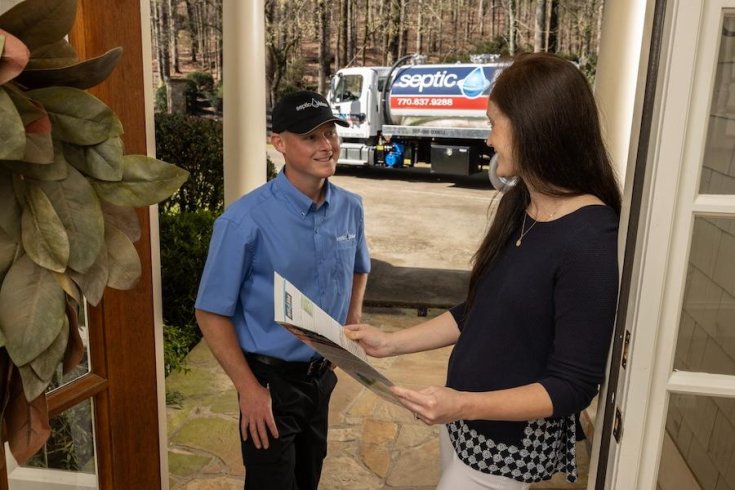
Hiring a septic company in Raleigh, NC involves more than comparing prices or scheduling the earliest appointment. Septic pumping, cleaning,…
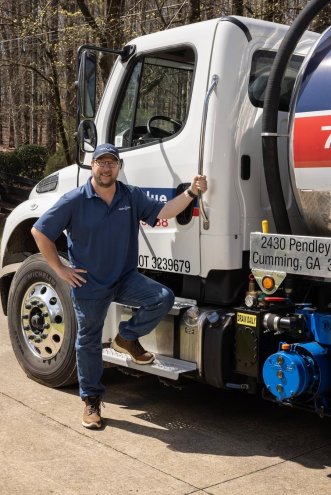
A septic system is designed to move wastewater efficiently from your home into a tank and then into the drain field.…
.webp)
Even if it often fades into the background of daily life, a septic system plays a critical role in keeping your…
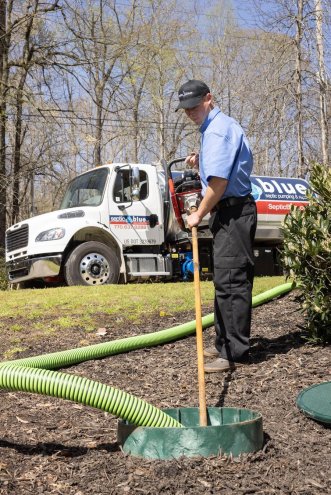
Septic systems play a critical role in protecting your home, health, and surrounding environment. Unfortunately, they're often misunderstood as systems that…